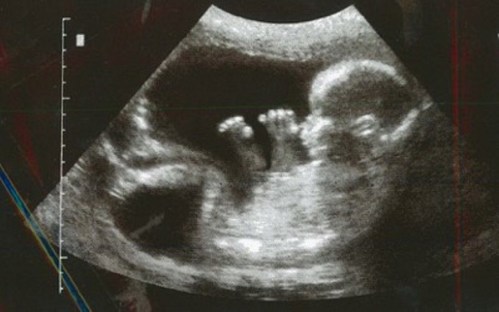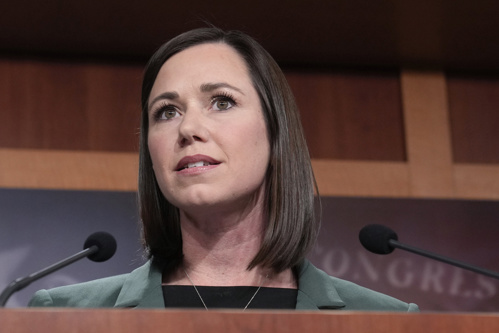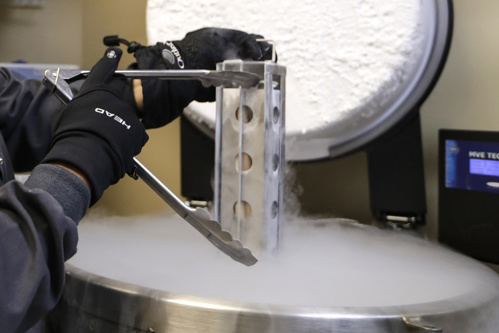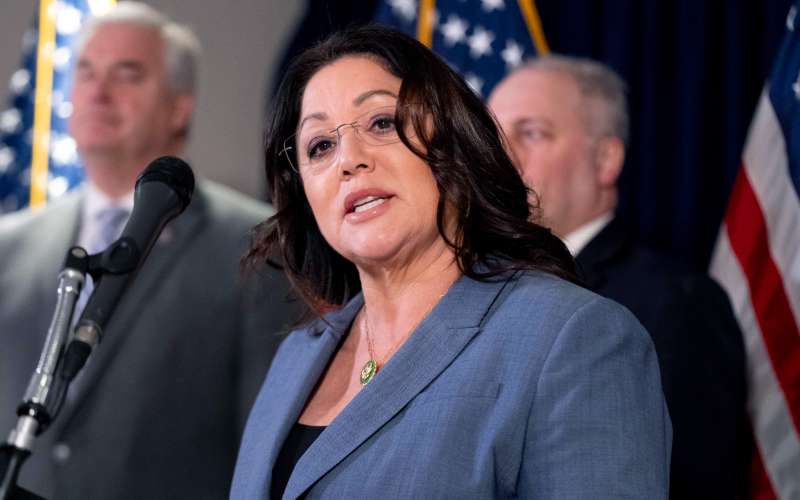The President on Tuesday signed an executive order calling for lower costs and greater access for in vitro fertilization (IVF), science-assisted pregnancy with embryos created in a lab.
“Because we want more babies, to put it very nicely," Trump told reporters. "And for this same reason, we will also allow new parents to deduct major newborn expenses from their taxes. So that parents that have a beautiful baby will be able. So we’re pro-family."
Karoline Leavitt, the White House Press Secretary, praised the E.O. as “Promises Made, Promises Kept," which was not just a political slogan but a history lesson, too, from the campaign.
IVF became a major campaign topic a year ago when the Alabama Supreme Court ruled that extra embryos – ones that come about when the process creates more embryos than children wanted by the couple – constitute live people.
 Unwanted embryos, some screened for potential genetic disease, are simply discarded, Catholic News Agency reports.
Unwanted embryos, some screened for potential genetic disease, are simply discarded, Catholic News Agency reports.
The extras can be frozen if clients want to assume the extra cost to preserve them.
Not all eggs will successfully fertilize and clinics typically extract 10-15 eggs for one treatment, CNA reports.
A single IVF treatment can cost a couple from $12,000 to $25,000 per cycle, and multiple cycles may be needed for a hopeful mother to become pregnant, the executive order states.
Some embryos are donated and carried to live births but the numbers are low, CNA reported.
Some embryos are also donated to medical research.
IVF is often not fully covered by health insurance, hence President Trump's executive order this week.
Pro-life advocates say the order is light on specifics and doesn’t detail what the increased access looks like and what happens to excess embryos.
 U.S. Sen. Katie Britt (R-Alabama) praised the executive order.
U.S. Sen. Katie Britt (R-Alabama) praised the executive order.
“IVF is profoundly pro-family, and I’m proud to work on ensuring more loving parents can start and grow their families,” she wrote.
But is IVF pro-life?
Dr. Andrew Walker, an associate dean at Southern Baptist Theological Seminary, told Washington Watch Wednesday the EO did not provide much guidance about future policies.
"It just called for policy recommendations," he said. "So I think that we have to just kind of take a wait-and-see approach and hope that the Trump administration doesn't go too far out on this issue."
A reckless, dangerous process?
Katie Brown, of American Life League, flatly condemned the executive order in an interview with AFN.
“The reason we condemn the order is because actually more babies die via IVF every year than from abortion,” she told AFN. “In the last year, about 400,000 babies died via abortion. The number of IVF babies was almost triple that.”

Brown calls the IVF process “very reckless and very dangerous.”
People should not be confused by the terminology, she said.
“Embryo is just another term for fetus or baby or preborn child,” she said.
Human dignity is at stake with the executive order, Walker told Washington Watch host Tony Perkins.
SBC waded into controversy
In a resolution passed last summer, the Southern Baptist Convention neither praised nor fully condemned IVF. It noted that the process causes providers to “participate in the destruction of embryonic human life.” The SBC also expressed concern that IVF encourages families beyond the God-ordained husband-and-wife model.
“Not all technological means of assisting human reproduction are equally God-honoring or morally justified,” it states.
The resolution calls on Southern Baptists in need to use reproductive technology that affirms “the unconditional value and right to life of every human being, including those in an embryonic stage.”
 Care of the embryos is not the only moral concern within the IVF process, Walker said.
Care of the embryos is not the only moral concern within the IVF process, Walker said.
“The first moral concern is that we're going outside the God-appointed, scriptural-appointed boundaries for how we understand children to come into this world, which is through the marital act of husband and wife. When we step outside those boundaries, we're going to introduce moral concerns,” he said.
The excess embryos present the second moral hurdle.
“As Christians, we believe every single human being, regardless of their stage of development, is made in God's image,” Walker said.
As other nations address these concerns, some have placed limits on the number of embryos that can be brought forth in a single IVF treatment.
“That should be one of the things that conservatives and Christians want to bring to this conversation,” Walker said.
EO seeks to 'aggressively' lower costs
Trump’s EO has only two parts. It calls for policy recommendations to protect IVF access and to “aggressively” reduce out-of-pocket healthcare costs for such treatments.
The EO could be an important first step.

Right now, the IVF industry lacks significant regulation.
“There aren’t many legal constraints to this industry,” Walker said. “For example, we don't even know how many frozen human beings, frozen embryos there are currently in the United States because there are no legal reporting requirements.”
Those types of guardrails, should they grow from the EO, would be helpful, he said.
“There’s an education campaign that has to go on,” Walker said. “The broader public is unaware of the intricacies of what goes on with in vitro fertilization, and that's even the case within the evangelical population as well. Unfortunately, we're operating at a great cultural disadvantage on this issue.”







